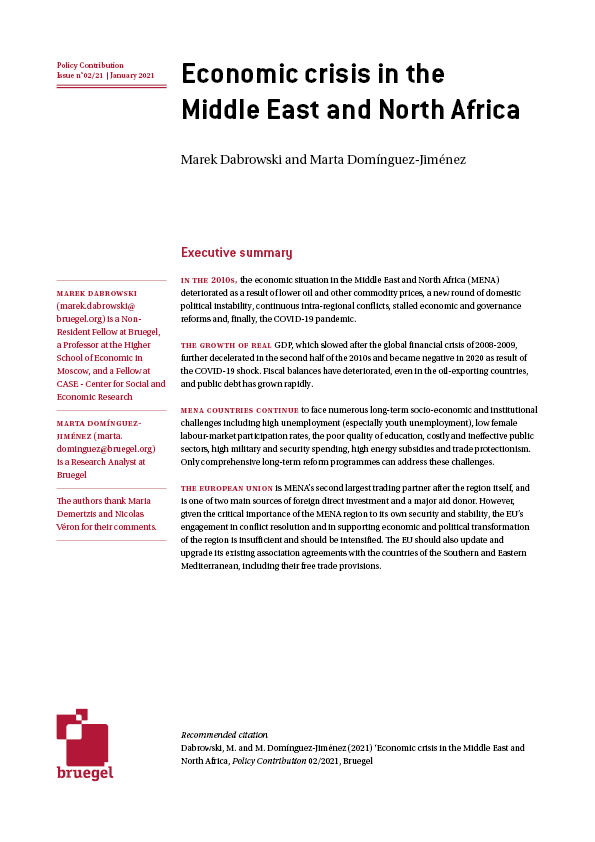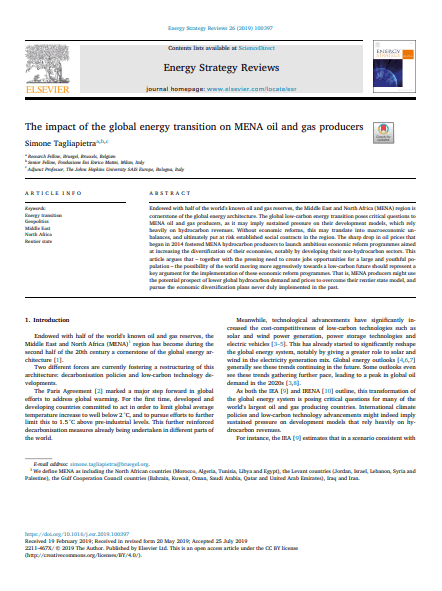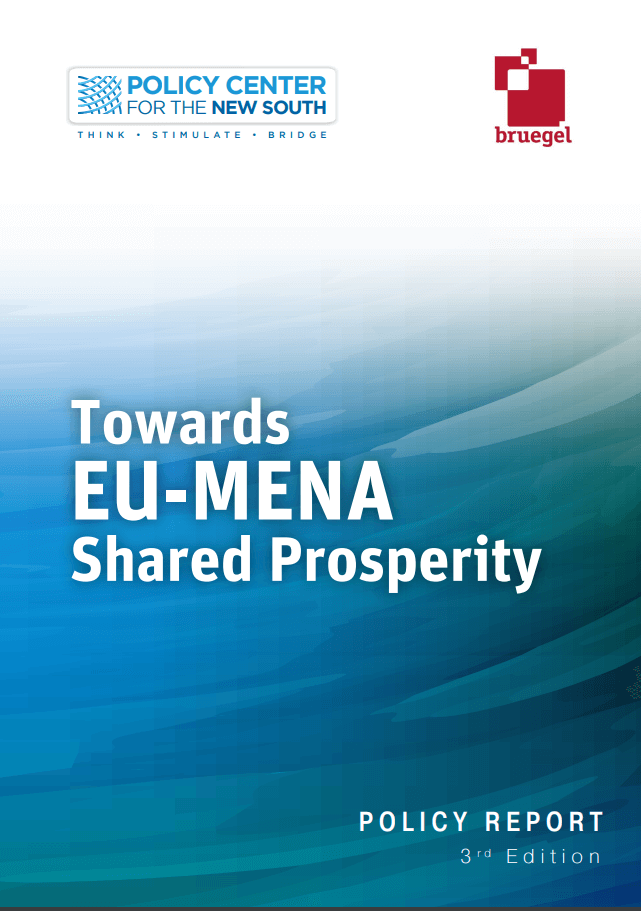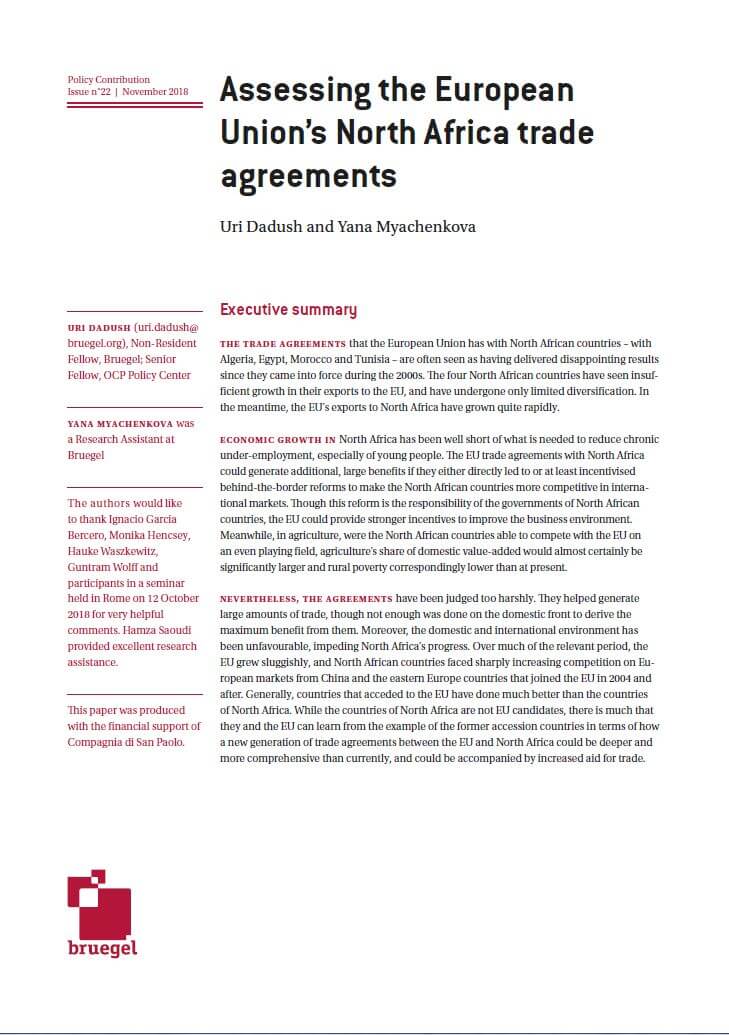Policy responses for an EU-MENA shared future
In the third edition of the "Platform for Advanced & Emerging Economies Policy Dialogue" we will discuss trade flows and trade policy between Europe and MENA, integration of developing economies into global value chains, and regional energy relations.
Speakers: Karim El Aynaoui, Marek Dabrowski, Uri Dadush, Ignacio Garcia Bercero, Ettore Greco, Giuseppe Grimaldi, Badr Ikken, Joanna Konings, Said Moufti, Pier Carlo Padoan, Lia Quartapelle, Visar Sala, Nicolò Russo Perez, Nicolò Sartori, Simone Tagliapietra and Guntram B. Wolff
Location: LUISS Business School Viale Pola, 12, 00198 Roma RM, Italy
Date: October 11, 2018











